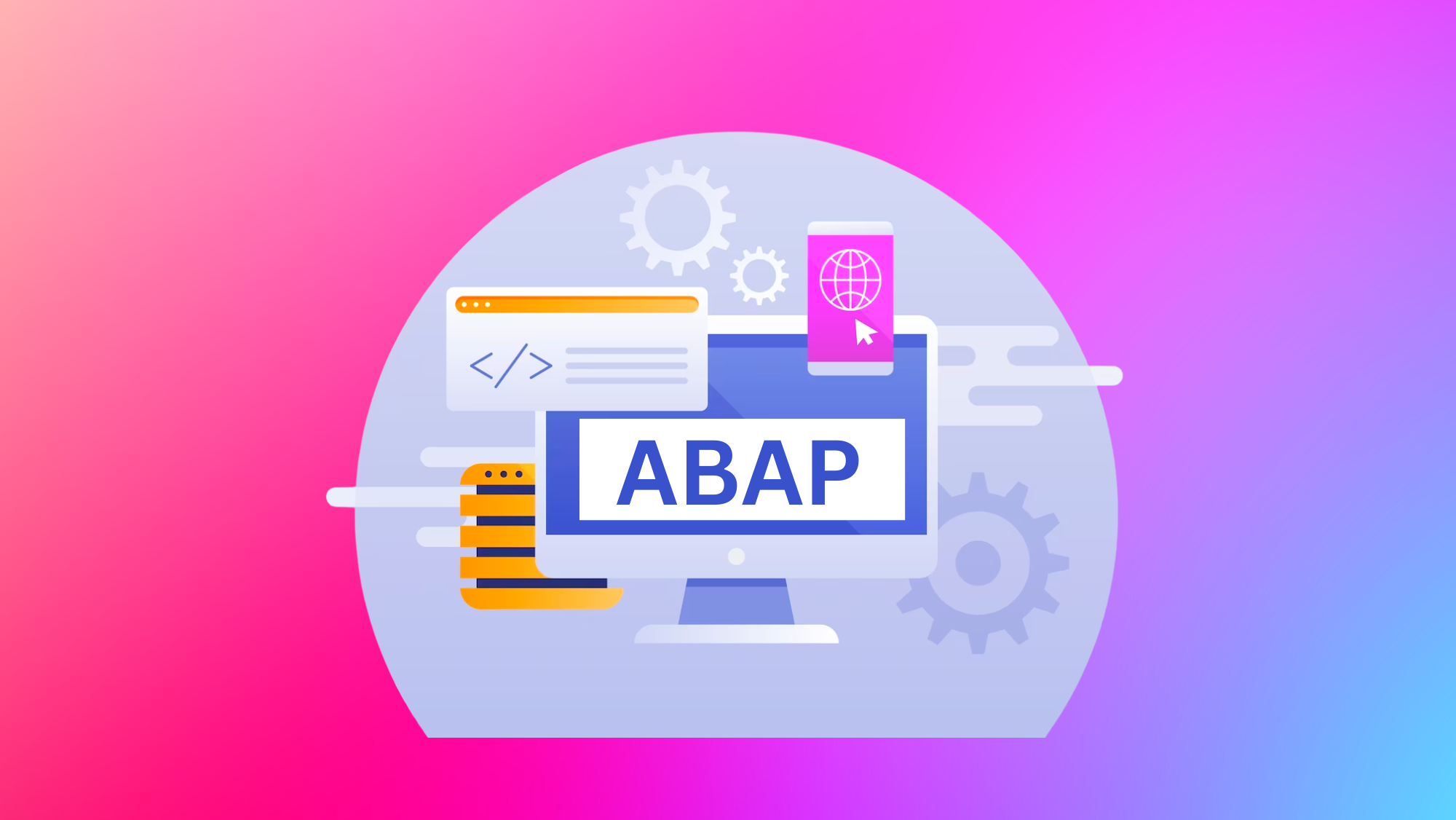Everything You Need to Know About SAP ABAP Training
Introduction:
In today's rapidly evolving business landscape, organizations rely heavily on advanced technology solutions to streamline their operations and gain a competitive edge. One such widely adopted technology is SAP (Systems, Applications, and Products) software, which offers comprehensive enterprise resource planning (ERP) solutions. At the heart of SAP lies ABAP (Advanced Business Application Programming), a programming language specifically designed for developing and customizing SAP applications. In this blog post, we will delve into the significance of SAP ABAP training and explore the reasons why it is crucial for professionals in the IT industry.
Why is SAP ABAP Training Important?
1. Unlocking Lucrative Career Opportunities: With the growing dominance of SAP systems in businesses across various industries, there is an increasing demand for skilled professionals who can effectively develop, customize, and maintain SAP applications. Undertaking SAP ABAP training can open doors to exciting career opportunities, enabling you to work with renowned organizations and embark on a rewarding professional journey.
2. Customization and Adaptability: No two businesses are alike, and SAP ABAP training empowers you to tailor SAP applications to meet specific organizational requirements. ABAP provides a robust set of tools and libraries that enable developers to customize existing functionalities, create new features, and optimize SAP solutions according to unique business needs. This customization ability allows businesses to leverage SAP software to its fullest potential, resulting in enhanced efficiency and productivity.
3. Seamless Integration: Integration is vital for businesses operating in a digital ecosystem, and SAP ABAP plays a pivotal role in connecting SAP modules with external systems. ABAP training equips professionals with the skills to develop interfaces, establish communication channels, and automate data exchange between different components of an SAP landscape. This integration capability enables organizations to achieve smooth and efficient workflows across departments, improving overall operational efficiency.
4. Performance Optimization: SAP ABAP training provides insights into writing efficient and optimized code, which is essential for maximizing the performance of SAP systems. By learning optimization techniques, developers can enhance data retrieval and processing, minimize response times, and optimize resource utilization. This leads to improved system performance, ensuring swift and seamless execution of critical business processes.
5. Maintenance and Support: Every software system requires regular maintenance and support, and SAP applications are no exception. ABAP-trained professionals possess the necessary expertise to identify and resolve issues, debug programs, and apply necessary patches or enhancements. With ABAP skills, you become a valuable asset to organizations, contributing to the smooth functioning of SAP systems and providing efficient support when required.
SAP ABAP Career Opportunities:
1. High Demand for SAP ABAP Professionals: As SAP software continues to be adopted by businesses across diverse industries, the demand for skilled SAP ABAP professionals is on the rise. Organizations are seeking individuals who possess the knowledge and expertise to develop, customize, and maintain SAP applications. By acquiring SAP ABAP skills, you position yourself at the forefront of a thriving job market, with ample opportunities to work with leading organizations globally.
2. SAP ABAP Developer: One of the most common career paths for individuals with SAP ABAP knowledge is that of an SAP ABAP developer. In this role, you will be responsible for designing, coding, and implementing customized functionalities within SAP systems. You will work closely with business analysts and end-users to understand their requirements and translate them into efficient and effective SAP solutions. SAP ABAP developers play a crucial role in tailoring SAP applications to meet specific organizational needs, making them invaluable assets to businesses.
3. SAP ABAP Consultant: SAP ABAP consultants are experts in ABAP programming and possess a deep understanding of the SAP architecture. They provide guidance and support to organizations in leveraging SAP software to its fullest potential. As an SAP ABAP consultant, you will be involved in analyzing business processes, identifying areas for improvement, and implementing SAP solutions to optimize workflows. This role requires a combination of technical expertise, functional knowledge, and strong communication skills to effectively bridge the gap between IT and business stakeholders.
4. SAP ABAP Technical Lead: For individuals with significant experience and leadership capabilities, the role of an SAP ABAP technical lead offers a rewarding career path. As a technical lead, you will be responsible for overseeing SAP ABAP development projects, coordinating with cross-functional teams, and ensuring the successful delivery of solutions. This role requires a comprehensive understanding of ABAP programming, project management skills, and the ability to mentor and guide junior developers.
5. SAP ABAP Architect: As businesses strive for digital transformation and integration, the role of an SAP ABAP architect becomes increasingly critical. SAP ABAP architects design and develop the overall structure and architecture of SAP systems, ensuring scalability, performance, and adherence to best practices. They collaborate with business stakeholders, technical teams, and solution architects to define the strategic direction of SAP implementations and provide expertise in ABAP-related design decisions.
Prerequisites For SAP ABAP Training:
1. Basic Programming Knowledge:
Before diving into SAP ABAP, it is crucial to have a good understanding of basic programming concepts. Familiarity with programming languages such as C, Java, or Python can provide a solid foundation. Concepts like variables, data types, loops, conditional statements, and functions are universal to most programming languages and will greatly assist in grasping ABAP concepts and syntax.
2. Database Concepts: SAP ABAP interacts with databases to store and retrieve data. Having a basic understanding of database concepts is beneficial. Concepts like tables, fields, relationships, SQL queries, and database management will help you work effectively with the data within SAP applications and develop efficient ABAP programs.
3. Knowledge of SAP Basics: While not mandatory, having a fundamental understanding of SAP and its modules can give you a head start in SAP ABAP training. Familiarize yourself with SAP's ERP system and gain knowledge of common SAP modules such as finance, sales, procurement, and human resources. Understanding the business processes and terminology used in SAP will provide context and enable you to develop more effective ABAP solutions.
4. Object-Oriented Programming (OOP) Concepts: SAP ABAP supports object-oriented programming, and having a grasp of OOP concepts will greatly enhance your ABAP programming skills. Understanding concepts such as classes, objects, inheritance, polymorphism, and encapsulation will allow you to leverage the full power of ABAP and develop modular and reusable code.
5. Technical Background: While not a strict prerequisite, a technical background in IT or computer science can be advantageous when pursuing SAP ABAP training. A solid understanding of computer systems, networks, operating systems, and software development principles will provide a broader context for ABAP programming and help you troubleshoot technical issues more effectively.
6. Eagerness to Learn and Problem-Solving Skills: Above all, having a genuine passion for learning and a strong problem-solving mindset is crucial for SAP ABAP training. ABAP programming often involves analyzing complex business requirements and finding innovative solutions. Having the ability to think critically, break down problems, and apply logical reasoning will greatly contribute to your success as an ABAP developer.
Conclusion:
SAP ABAP is a powerful programming language that holds significant importance in the SAP ecosystem. With its ability to customize, integrate, and optimize SAP applications, ABAP offers immense opportunities for individuals seeking a career in SAP development and customization. By acquiring ABAP skills, professionals can contribute to the success of organizations by tailoring SAP solutions to meet specific business requirements, ensuring seamless integration with external systems, and optimizing system performance. SAP ABAP is a valuable asset in today's technology-driven world, and its relevance and demand are expected to continue growing in the years to come.
You May Also Like
These Related Stories

Everything You Need to Know About SAP ABAP on HANA Training

Mastering SAP ABAP: Essential Tips and Tricks for Developers




No Comments Yet
Let us know what you think